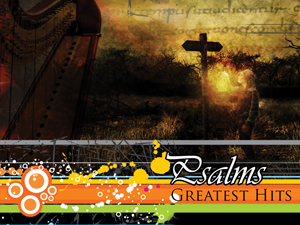The Book of Psalms is the largest and perhaps most widely used book in the Bible. It explores the full range of human experience in a very personal and practical way. Its 150 “songs†run from the Creation through the patriarchal, theocratic, monarchial, exilic, and postexilic periods. The tremendous breadth of subject matter in the Psalms includes diverse topics, such as jubilation, war, peace, worship, judgment, messianic prophecy, praise, and lament. The Psalms were set to the accompaniment of stringed instruments and served as the temple hymnbook and devotional guide for the Jewish people.
The Book of Psalm was gradually collected and originally unnamed, perhaps due to the great variety of material. It came to be known as Sepher Tehillum – “Book of Praises†– because almost every psalm contains some note of praise to God. The Septuagint uses the Greek word Psalmoi as its title for this book, meaning poems sung to the accompaniment of musical instruments. It also calls it the Psalterium (a collection songs), and this word is the basis for the term “Psalter.â€Â The Latin title is Liber Psalmorum, “Book of Psalms.â€[1]
Daybreak will look at each of the ten types of Psalms during the weeks of May 10th to July 12th.  You will discover that men and women throughout time have struggled with the same thoughts and frustrations, and rejoiced and sought truth just as you have. Let’s discover what this wonderful book has to say about our lives.
[1] Bruce Wilkinson and Kenneth Boa. Talk Through the Bible (Nashville, Tennessee: Thomas Nelson, 1983), 152.
